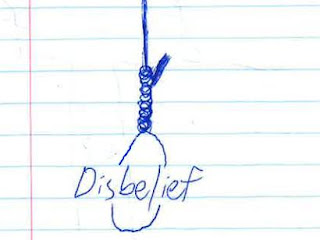My name is Jason Peterson. I am a BYU student studying psychology, and have been married for 2 years. I am an intersectional feminist, and want to make the world a better place! Today I would like to outline one way we might be able to accomplish this together.
Have you ever posted something you're excited about on some form of social media, only to have a fight break out underneath in the comments section, between two sets of people who have very opposing viewpoints on the topic?
These situations often show signs of a lack of dialectical thinking. "Dialectical thinking" means to be able and willing to understand and recognize the truth behind opposing viewpoints. Not only that, but it means that you are willing to find a solution that meets the needs of both opposed views.
When people think dialectically, not only is a healthy dialogue is able to occur where each side is examined and understood objectively, but it also leads to results!
In literary terms, this is called a suspension of disbelief, and is a very necessary tool! If you don't suspend your disbelief while watching/reading Harry Potter, for example, then the whole time you're experiencing it you will be experiencing cognitive dissonance between your understanding of reality and the alternate reality you are presented with.
When people are not able/willing to think dialectically, confirmation bias sets in, and now instead of arguing opposing views in order to reach a workable well-rounded compromise, arguing opposing views becomes an exercise in futility and an act of aggression. This pushes people apart, and does not produce results.
One example of where this happens today is Congress! 90% of the US public agrees that congress does not get enough done. Our constitution was designed in order to foster compromise between opposing views, so especially in this situation when the various political sides won't think dialectically, nothing is accomplished.
Speaking of the constitution, this is a great example of what great things can happen when we think dialectically! Anyone who knows much about the writers of this document know that oftentimes they disagreed VEHEMENTLY on very important topics! And yet, while it took a lot of work, in the end they were willing to put their pens to the same document, which has served us in the US well ever since.
Some people hear about the concept of dialectical thinking and think that this means you can't really believe in one concept or ideology, but that is not the case! It simply means that you are willing to recognize that there are truths other than your own which are of value and should be treated as such.
In our day and age we are presented with a wide array of opportunities to be learning from a vast array of ideas and viewpoints which may not align, or even might directly oppose our own. And yes if we are not willing to learn from them, how will progress ever be made?
I propose that in order to learn from and utilize all the truth and good that exists in the world, we have a responsibility to eliminate our tendency towards confirmation bias and engender our ability and willingness to think dialectically!











I agree! I am a strong proponent of the concept of Absolute Truth. Our duty is to discover truth, not define it. To do this you must be willing to look at both sides, do a little research, and discover what the truth really is.
ReplyDeleteI agree! I am a strong proponent of the concept of Absolute Truth. Our duty is to discover truth, not define it. To do this you must be willing to look at both sides, do a little research, and discover what the truth really is.
ReplyDelete